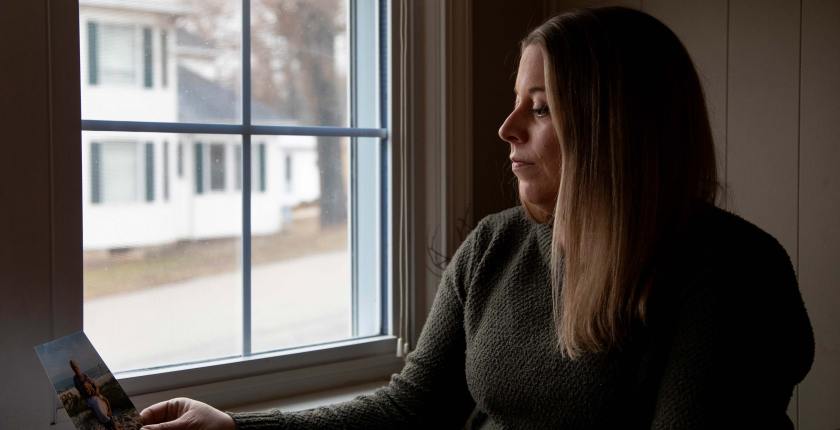California Continues Progressive Policies, With Restraint, in Divisive Election Year
This legislative cycle, Gov. Gavin Newsom signed bills affirming reproductive rights and mandating insurance coverage of in vitro fertilization, but the Democrat was reluctant to impose new regulations and frequently cited costs for vetoing bills.
Mountain Town Confronts an Unexpected Public Health Catastrophe
Flooding wrought by Hurricane Helene devastated communities around Asheville, North Carolina. A host of government programs are helping restore water, food, and medicine.
Patients Are Relying on Lyft, Uber To Travel Far Distances to Medical Care
Uber and Lyft have become a critical part of the nation’s infrastructure for transporting ailing people from their homes — even in rural areas — to medical care sites in major cities such as Atlanta.
More Mobile Clinics Are Bringing Long-Acting Birth Control to Rural Areas
Small-town doctors may not offer IUDs and hormonal implants because the devices require training to administer and are expensive to stock.
California Hospitals Scramble on Earthquake Retrofits as State Limits Extensions
California legislators for years have granted extensions on a 1994 law requiring hospitals to retrofit their buildings to withstand earthquakes. Gov. Gavin Newsom in September vetoed an extension for all hospitals but signed a bill granting relief to rural and “distressed” hospitals and some others.
Colorado’s Naloxone Fund Is Drying Up, Even as Opioid Settlement Money Rolls In
Since Colorado created a pool of money to pay for naloxone in 2019, it has distributed more than half a million doses of the opioid reversal drug to hundreds of organizations throughout the state. Now, its main funding stream is drying up.
Cash Shortages and Complex Rules Impede Native American Health-Care Access
Each year, the Indian Health Service rejects tens of thousands of requests to fund outside care that it doesn’t provide, forcing patients to go without treatment or pay big medical bills themselves. The IHS is supposed to provide free care to Native Americans, but it does so only at scattered clinics and hospitals the agency funds and then manages […]
Watch: ‘Breaking the Silence Is a Step’ — Beyond the Lens of ‘Silence in Sikeston’
KFF Health News Midwest correspondent Cara Anthony discusses her reporting for the “Silence in Sikeston” multimedia project, which explores the impact of a 1942 lynching and a 2020 police killing on a rural Missouri community — and what it led her to learn about her own family’s past.
Silence in Sikeston: Is There a Cure for Racism?
In the finale of “Silence in Sikeston,” Black residents organize a Juneteenth barbecue. The Department of Public Safety chief encourages officers to attend to build trust. But improving relations between Sikeston’s Black community and the police won’t be easy. Host Cara Anthony discusses the possibility of institutional change in Sikeston.
Catholic Hospital Offered Bucket, Towels to Woman It Denied an Abortion, California AG Said
In California, where abortion rights are guaranteed, there’s a loophole. The growth of Catholic hospital systems, which restrict reproductive health care, has left patients with no other option for care. That will be the case for pregnant women in Northern California, with a hospital set to close its birth center.
More Restrooms Have Adult-Size Changing Tables To Help People With Disabilities
Adults with disabilities and their caregivers are pressing governments and private businesses across the U.S. to help them avoid undignified public bathroom experiences.
Harris’ Emphasis on Maternal Health Care Is Paying Dividends With Black Women Voters
Polls are showing renewed support from Black women voters for the Democratic ticket. Vice President Kamala Harris has backed key health priorities for Black women.
Silence in Sikeston: Trauma Lives in the Body
Denzel Taylor, a young Black father, moved from Chicago to Sikeston, Missouri, for a fresh start in life. There, he proposed to his girlfriend, started a family, and then, in April 2020, was fatally shot by police officers. Taylor had two young daughters and another on the way when he was killed. Pediatrician Rhea Boyd talks about how children process such loss.
A Few Rural Towns Are Bucking the Trend and Building New Hospitals
A remote Wyoming community hoped for years to have more access to health care. Now, after receiving federal funding, it is bucking dismal closure trends throughout the rural U.S. and building its own hospital. And it’s not the only one.
Deadly High Blood Pressure During Pregnancy Is on the Rise
More pregnant women are being diagnosed with dangerously high blood pressure, which risks the life of the parent and child. Montana is one of the states improving screening and treatment as health facilities work to match care with best practices.
Watch: What You Reveal, You Heal — Meeting the Makers of ‘Silence in Sikeston’
KFF Health News Midwest correspondent Cara Anthony sat down with WORLD executive producer Chris Hastings to discuss the origins of the “Silence in Sikeston” project, which explores the impact of a 1942 lynching and a 2020 police killing in the same rural Missouri community.
Estudio revela que los casos de gripe aviar siguen sin detectarse
Si los casos de gripe aviar no se van informando, los oficiales de salud corren el riesgo de tardar en notar si el virus se vuelve más contagioso.
How North Carolina Made Its Hospitals Do Something About Medical Debt
State officials threatened to withhold public money from hospitals, pioneering a strategy that could become a national model.
She Was Accused of Murder After Losing Her Pregnancy. SC Woman Now Tells Her Story.
Amari Marsh, now 23, was a student at South Carolina State University when she lost her pregnancy in 2023. She was charged with murder and faced at least 20 years in prison. A grand jury cleared her in August. Now she’s sharing her story.
Rural NC County Is Set To Reopen Its Shuttered Hospital With Help From a New Federal Program
One rural North Carolina county is on track to be among the first where a hospital reopens owing to a new federal hospital classification meant to help save small, struggling facilities.



























